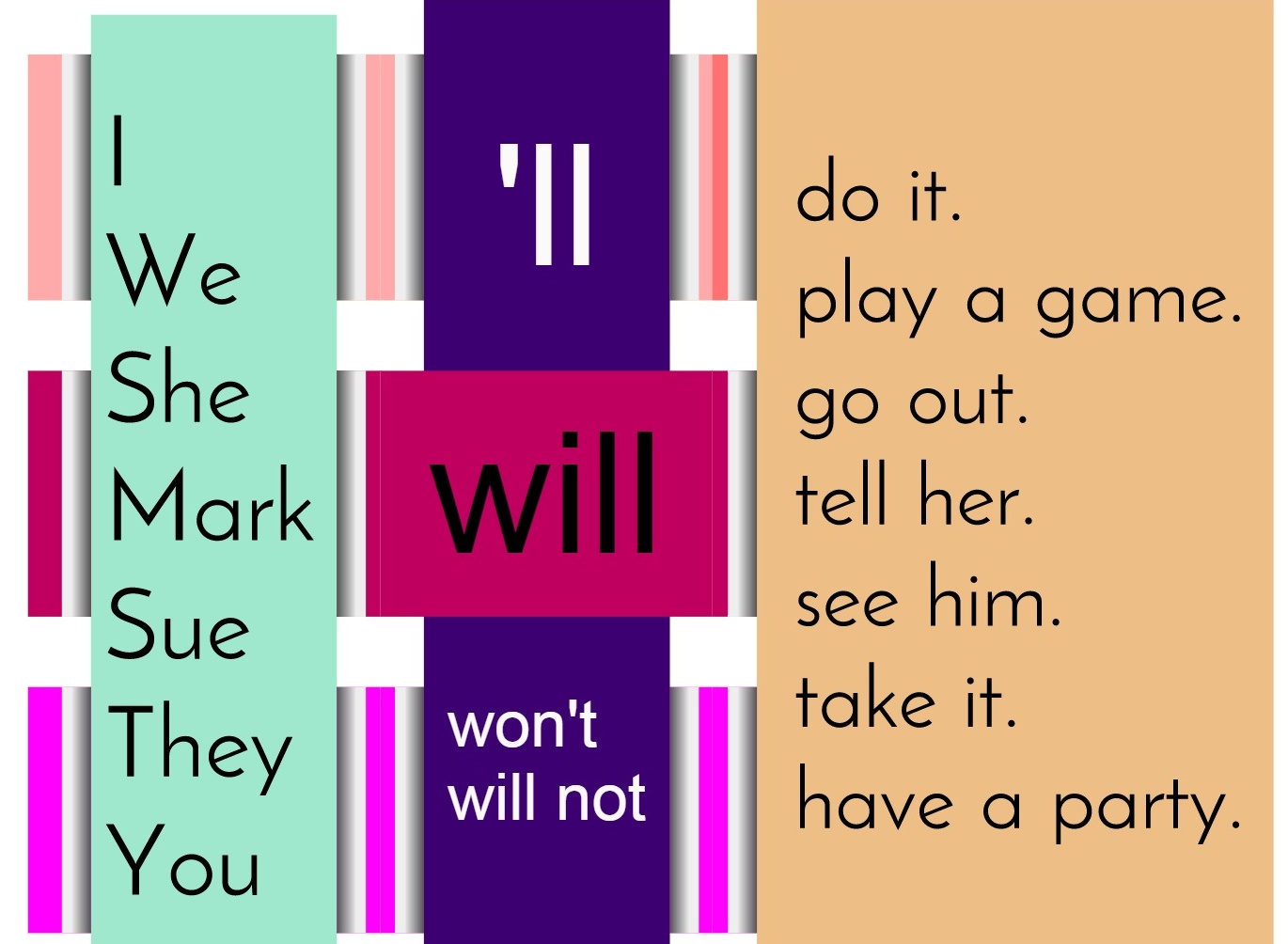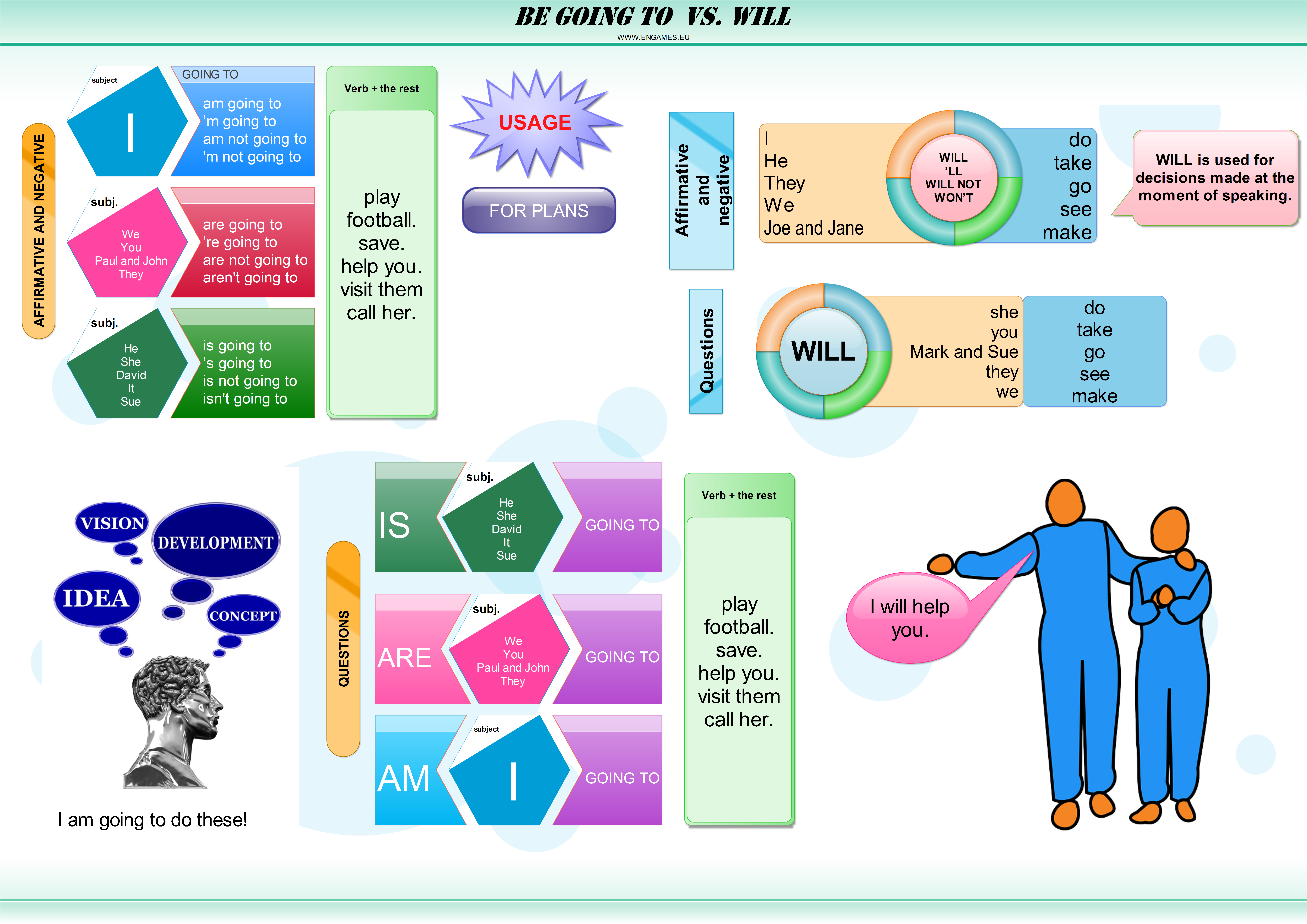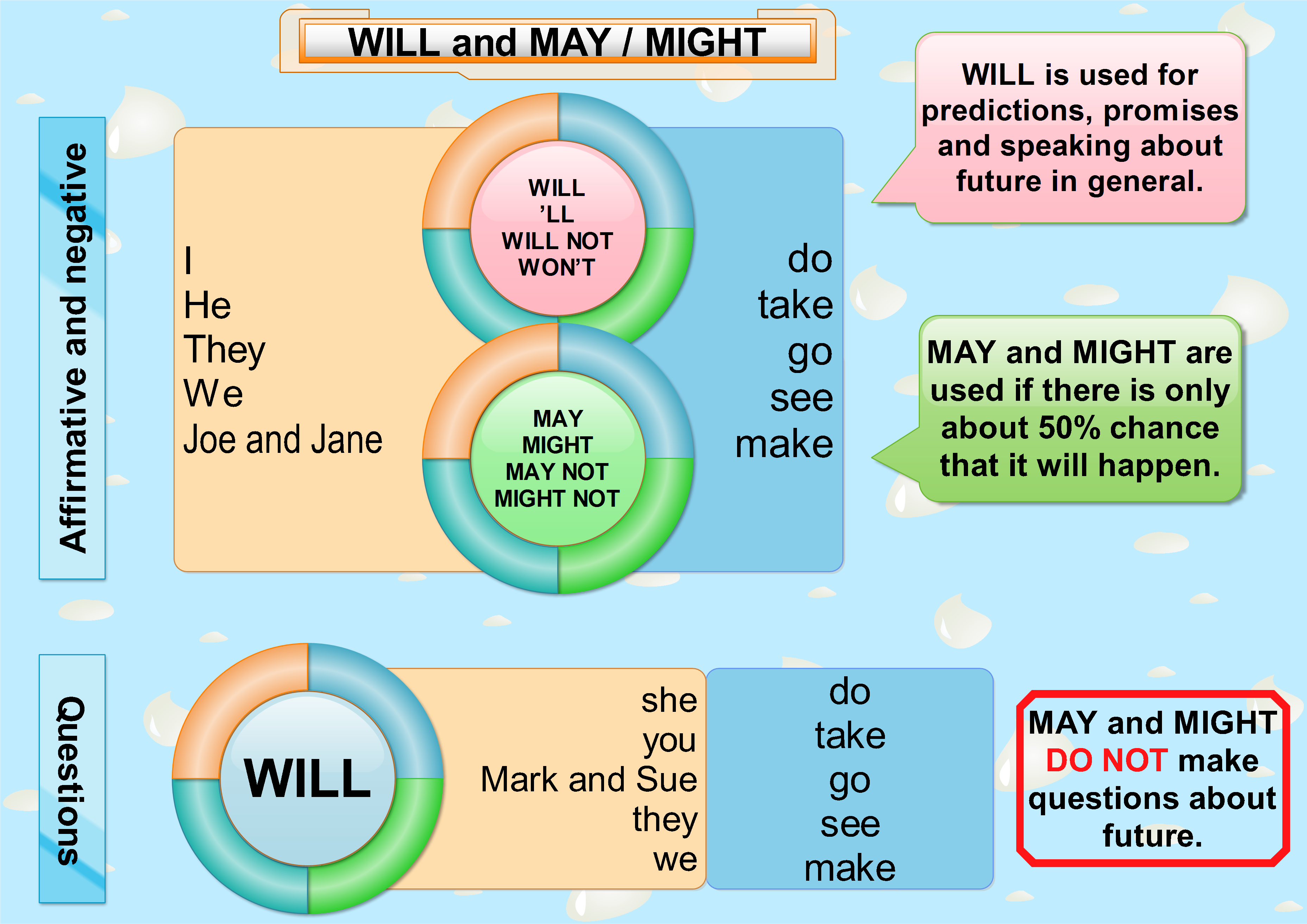Will for the future
There are many different ways to speak about the future in English. You can find all of them in the previous posts on future tenses at Will or be going to or at Be going to post. In this post I would like to explain and teach the usage of WILL for speaking about the…


